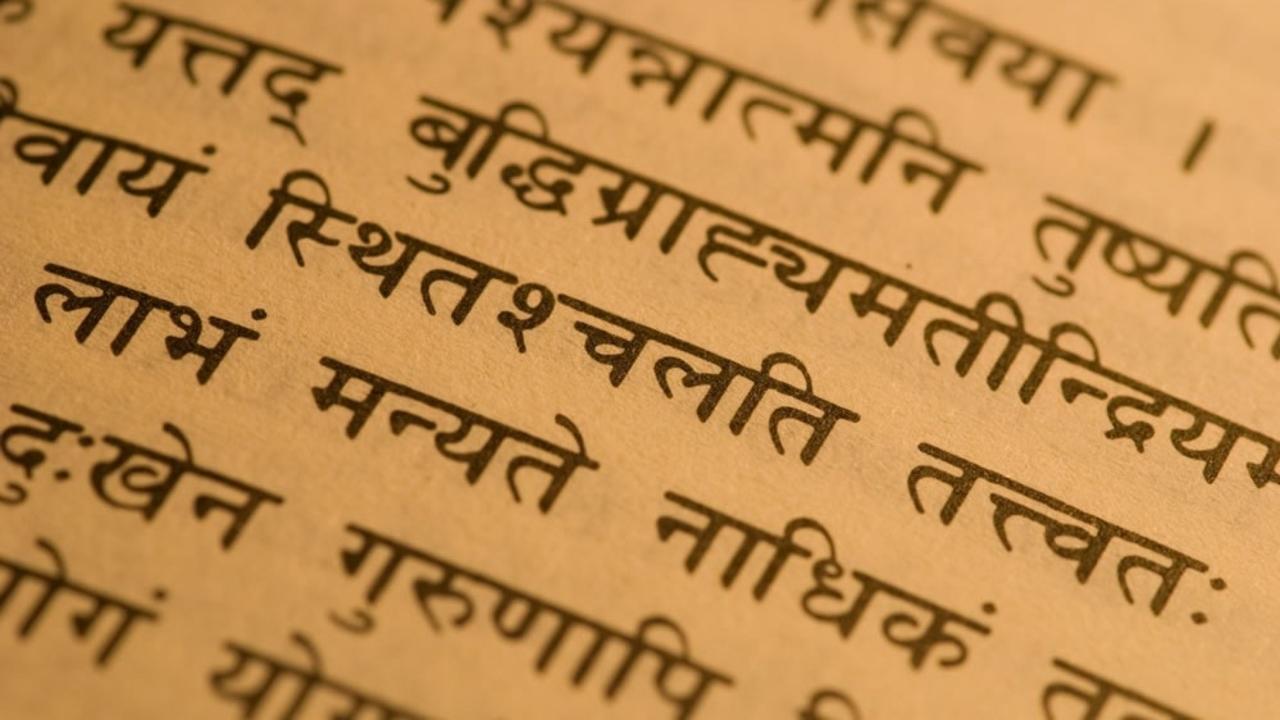
What You Need to Understand the Yoga Sutras
Aug 05, 2016You will never understand the Yoga Sutras if you read them in English. The only way to really imbibe their meaning is to feel them in Sanskrit.
Each Sanskrit syllable has an emotional quality that cultures your deepest way of knowing—your intuition.
You don’t need a dictionary to know what a word in Sanskrit means, in other words. You just need to teach yourself how to understand through feeling, like the great Sanskrit poet Kalidasa.
The Story of Kalidasa
Kalidasa wasn’t always a great poet, however. In fact, he was born a mute. Although he could hear, he never uttered a single sound—which made him unteachable.
You see, Vedic education requires listening and repeating in Sanskrit. If a child can’t speak she can’t be taught. So Kalidasa’s father abandoned his son’s studies and left him alone to play in the forest.
As a result, Kalidasa spent many hours alone in the nearby forest observing nature and enjoying the innocent play of the animals who became his friends.
One day a hunter entered the forest intent on acquiring his dinner. He spotted a wild boar, tracked him, and shot him with a poison arrow. Squealing out in agony over his painful wound, the boar lay dying awaiting the hunter’s final blow.
Kalidasa heard the pleas of the injured animal calling out, “ai, ai, ai!” The boar’s desperate wailing broke his heart and filled him with deep compassion.
As he listened more intently to the boar’s cries, Kalidasa opened his own mouth and mimicked the sounds in empathy, “ai, ai, ai!”
Hearing his sounds that were made with such deep empathy, the goddess of knowledge herself, Sarasvati, appeared suddenly before Kalidasa. Impressed with his compassion, she tilted her crescent moon crown and poured her poetry in him.
From then on, Kalidasa composed the most exquisite Sanskrit poetry straight out of his deeply feeling heart. He is celebrated even today as India’s most beloved poet.
What Gets Lost in Translation
Kalidasa’s story reveals what’s often missing in translations of yoga’s teachings like the Yoga Sutras—and that is how they feel when you recite them.
When you read or listen to the sutras in English, the intended feeling (and inherent meaning) is entirely lost.
For example, the first sutra is often translated, “Now begins the discipline that is yoga".
The only meaning that line conveys to us is that a subject is being introduced to preface a more meaningful discussion to come later. There is no feeling that arises in you from these words except perhaps boredom. Most likely you skip over this sutra, not realizing that the first word of it contains the essence of yoga.
Yet when you pronounce the first word of Sutra 1.1 in Sanskrit, and feel it properly, you understand the entire meaning of the Yoga Sutras as a whole.
Pronounce to Feel
The first word of the Yoga Sutras is atha.
The first syllable of atha is pronounced “uh.” Say that sound a few times, contrasting it with “aah".
When you say “uh”, you feel a contraction inside. In contrast, “aah” creates a feeling of release and expansion. You don’t say, “Uh, I’m in love” You say instead, “Aah, I’m in love” and, “Uh, I stubbed my toe!”.
“Uh” is a contraction. Because it’s a contracting feeling, it communicates the meaning “no”, “not” or “negation”. (It’s like in English when we say something is “atypical”. It means it’s “not typical”.)
“Uh” is the first of the 16 vowels of Sanskrit, each corresponding to the 16 phases of the waxing and waning moon. Each phase of the moon has a particular emotional quality associated with it that you can feel when you pronounce the vowel sounds correctly.
The first syllable of atha is a, corresponding with the feeling of a new moon.
On a new moon there is an absence of light. In that darkest night, you can see the full expanse of stars. Your vision isn’t limited.
Likewise when you pronounce the sound “uh,” you’re pulled deep inside yourself beyond the limitations of your feelings and thoughts.
So while the sound’s feeling conveys the meaning of “no and not,” it implies that you are not your body, feelings or thoughts. Your being is instead like the expanded night sky—deep, vast and limitless.
The next syllable of atha is tha.
It’s not pronounced like tha in thank you. In Sanskrit, you pronounce this sound by bringing the tongue in between the teeth and then dropping your jaw like a ventriloquist doll—“thuh”.
As you repeat this sound, it feels like you are being pulled down. “Thuh” feels and means “gravity”, which is the cause of your bondage.
Together if you say, atha, (“uh-thuh”), it feels and means “no gravity”, “not bound” and “no bondage”.
When are you not bound? When are you free.
When your mind is not dwelling on the past nor projecting onto the future, you are free. You are free right now.
And now is the discipline of yoga.
There’s no better time than now to Start Your Journey.
Learn how to read your Natal chart with my free masterclass now.



